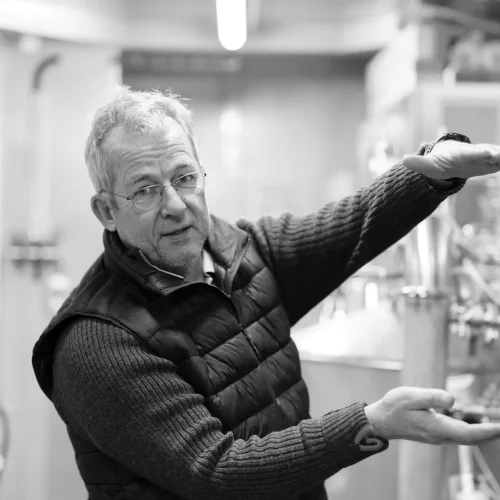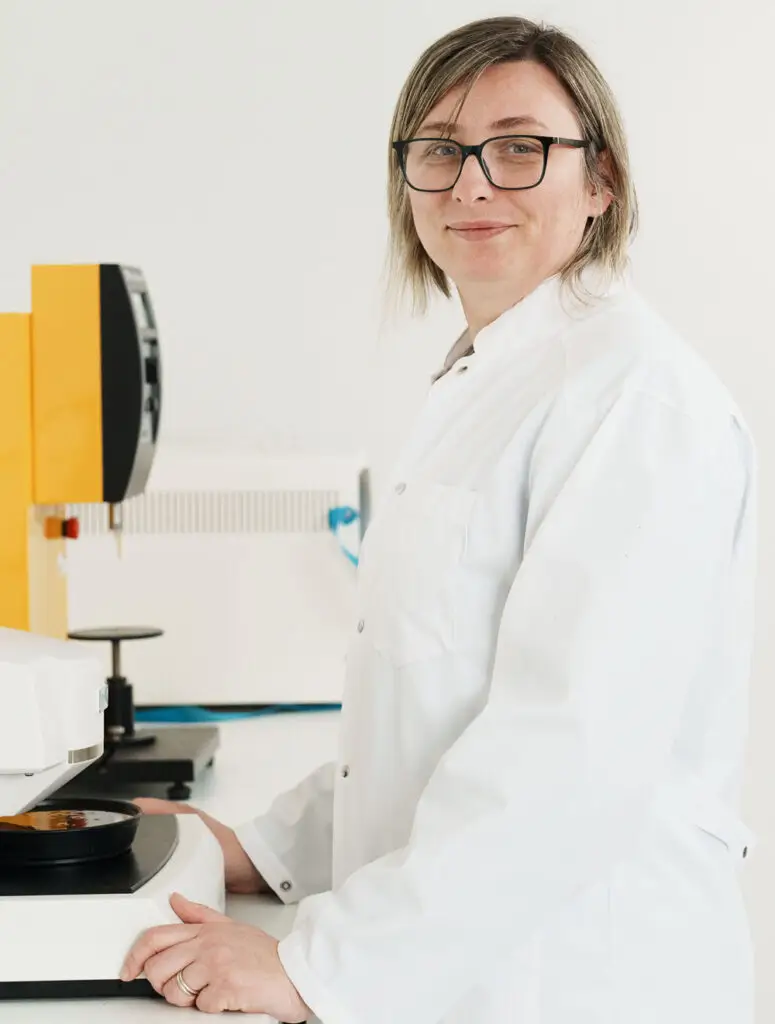This article was first published in International Petfood Magazine July 2024
Aquaculture waste: A wasted opportunity in petfood
When half of the biomass in a shrimp farm gets thrown out, it’s simply bad for business. By finding a use for aquaculture by-products, we are not only helping the environment, we are also making businesses grow. OddGeir Oddsen, CEO of feed ingredient manufacturer ProChaete, makes a case for sustainability.

OddGeir Oddsen, managing director of ProChaete, explaining the benefits of shrimp by-products.
The protein cycle
As the global population grows, so does the amount of food needed and so does the global amount of food waste. And not just waste in the most obvious sense – unconsumed, discarded food – but usable protein rich biomass discarded before it ever reaches a potential consumer. We cannot afford to waste so much any more.
When biomass is discarded, buried or otherwise removed from the natural cycle of proteins, we are in effect discarding a valuable feed ingredient.
In Europe, 25 percent of households own a cat or dog, totaling 91 million homes. With pet ownership growing annually by 3.5 percent and the pet food industry by 5.1 percent, access to new protein sources is essential. To meet this demand, we must keep biomass, often seen as waste, within the protein cycle and utilise our resources to their fullest potential.
Re-use
How do we utilise shrimp heads optimally? That depends on who you ask, but as the saying goes: To a boy wielding a hammer, everything looks like a nail.
In other words, a feed ingredient manufacturer, when presented with shrimp heads, would use them to manufacture feed. And we have. Our new feed ingredient is based on super fresh shrimp heads.
Our commitment to quality means using ingredients straight from the peeling line, preserving the integrity of the raw materials. Plus, it proudly carries the ASC (Aquaculture Stewardship Council) seal of approval, guaranteeing responsible aquaculture practices.
Money, money, money
But is there anything in it for the feed producers? There are cheaper protein alternatives on the marked. However, the quality and benefits of our proteins make them a smart investment. Our products help you produce premium feed at a higher price point, backed by a responsible and reliable supply chain.
With ProChaete, we strongly believe that buying products from us means accountability, and that opens up for more transparency. For us it is important that every measure is taken to reach our common goal of feeding a growing world.
At the same time the end-users are increasingly moving towards demanding sustainable products. They want transparency. They want to know what their pet eat and where it came from. That is why I am certain that manufacturers who turn to a sustainable value chain will win in the market place.
In addition to add great seafood flavour, our shrimp meal, Boost PRO, has a protein level of 55 percent and 18 percent ash. The cost-effective alternative Gain PRO has even lower ash content, only eight percent. This allows you to use less meat and have a more flexible formulation.
Expert insights
Milka Kosanovic, Director of Formulation and Product Development at Passion 4 Food, a leading feed formulation company in Norway. Milka highlights the importance of innovative protein sources like ProChaete’s products:
“ProChaete proteins offer a unique blend of sustainability, taste, and nutritional benefits that set them apart in the industry. By incorporating ProChaete proteins into formulations, we can not only meet the growing demand for nutritious pet food but also contribute to a more sustainable future.”
She continues, “Integrating new ingredients requires a careful balance of nutritional efficiency and product stability. For instance, with Boost PRO we’ve found that a small inclusion percentage can yield significant nutritional benefits while maintaining product integrity.”
Using shrimp heads as a protein resource is not enough to save the planet or make the pet food industry sustainable on its own. But it is a step in the right direction.
